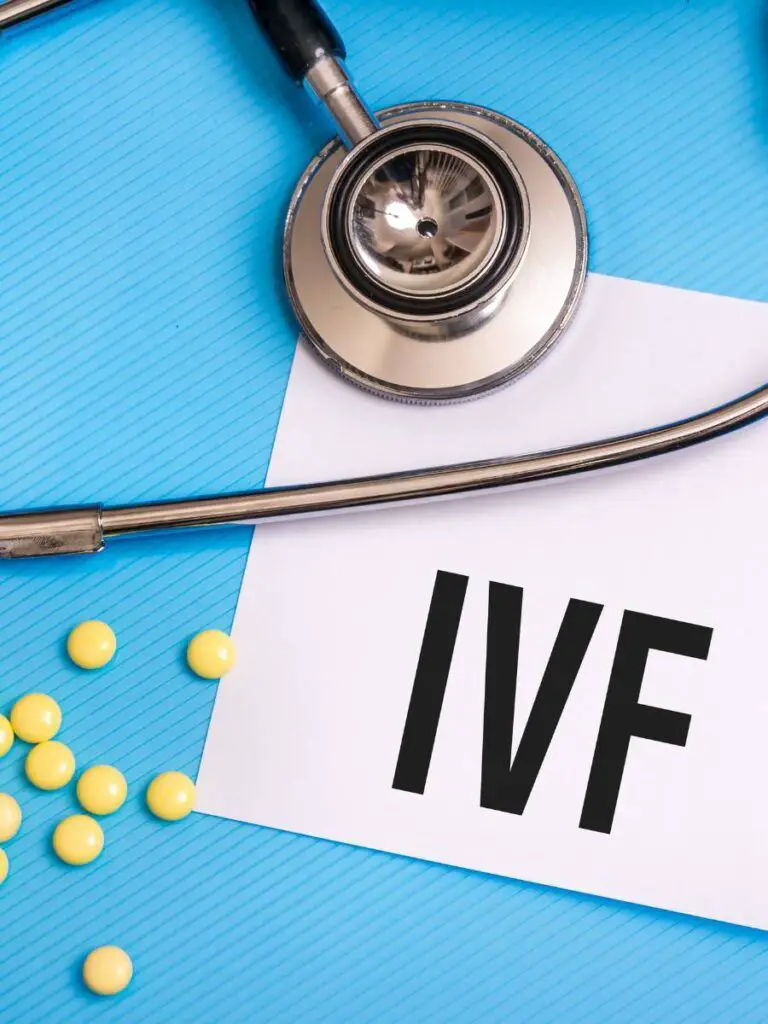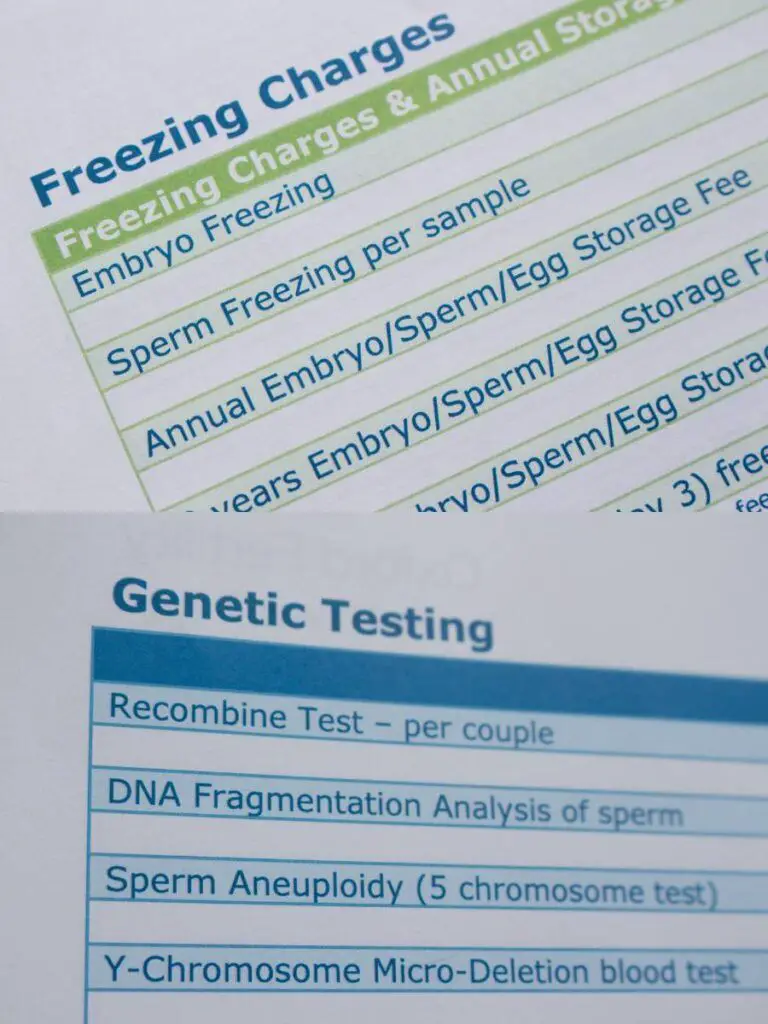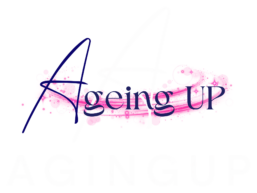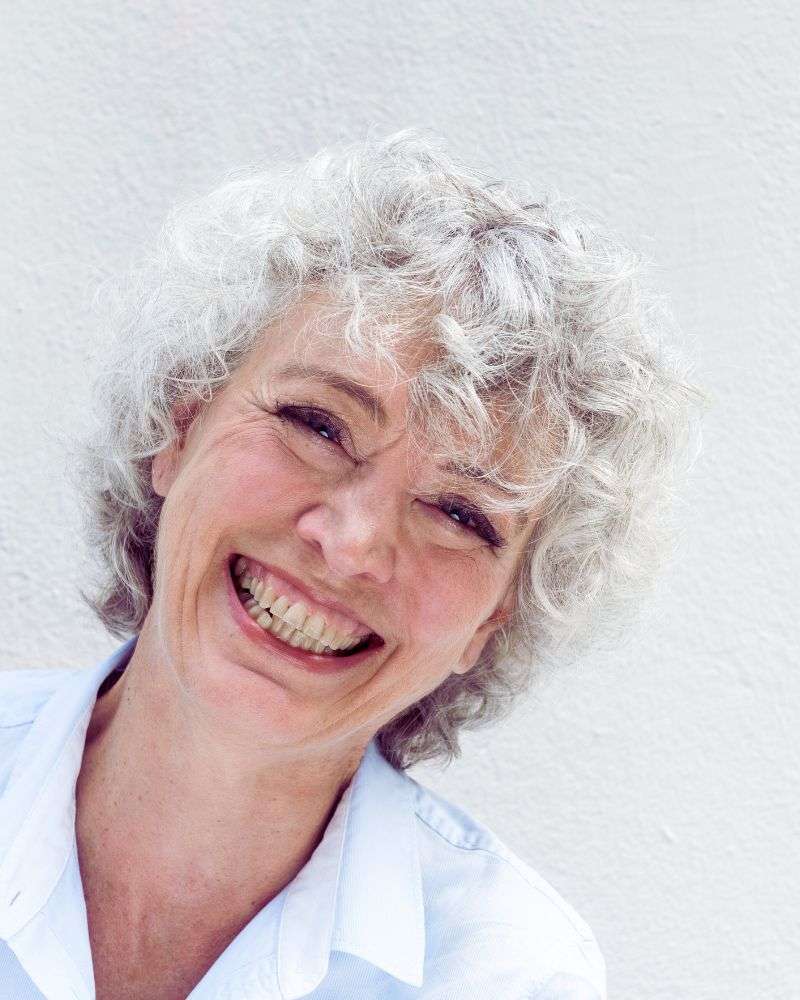As an Amazon affiliate, I may earn from qualifying purchases. Please read our Disclaimer and Privacy Policy.
Are you a woman over 50 considering IVF treatment to fulfill your dream of parenthood?
There was a time when the idea was practically unheard of, but things have changed over the years.
For example, clinics have improved egg freezing techniques, donor egg IVF is an option, IVF protocols have improved, and there is better screening and testing available.
Unfortunately, IVF success rates tend to decline with age. Women looking for IVF clinics over 50 can still face challenges. For example, the highest success rates of IVF treatments are usually in women under 35 years of age.
That doesn’t mean being over 50 automatically removes you from the candidate list.
These days, there is greater societal acceptance and support for women pursuing motherhood at later stages in life.
The post covers the most important aspects of IVF for women over 50, including:
- How IVF works
- Using donor eggs versus your own when you’re over 50 years of age
- Risks and potential health concerns for pregnant women over 50
- The cost of IVF treatments
- The best IVF clinics for over 50 individuals
Keep reading and find out what medical experts say about harvesting a woman’s eggs, the IVF procedure, and the risks associated with pregnancy later in life.
Disclaimer
Nothing in this blog post, or other blog posts with Ageingup.com is designed to be a substitute for medical advice. This blog post is for entertainment purposes only. The writer of this post has researched the content but makes no claims to be giving or authorizing any medical treatment. Please see your medical practitioner.

IVF CLINICS FOR OVER 50: How it Works
The fertilization process of IVF is taken outside the body and into a laboratory.
However, instead of using just one mature egg, as might occur in “natural” conception, IVF uses a higher number of eggs in order to improve your chances of having a successful outcome.
This is done through a process known as ovarian stimulation.
This involves using medications such as GnRH agonists or antagonists to temporarily suppress the natural hormonal fluctuations of the menstrual cycle and prevent premature ovulation.
Ovarian Stimulation
Ovarian stimulation involves a process that stimulates the production of eggs. Normally, the body would release one egg during a menstrual cycle.
In order to stimulate the production of many eggs, hormonal injections must be given.
According to You and Your Hormones, the treatment stimulates the physiological process in the natural menstrual cycle.
The goal behind this process is to prevent premature ovulation so that the eggs are not released from the follicles in the ovary to the fallopian tubes.
Triggering the number of eggs produced
Ovarian stimulation medications, typically in the form of injections, are used to encourage the ovaries to produce multiple follicles (fluid-filled sacs in the ovaries containing immature eggs).
The most commonly used medications for ovarian stimulation are follicle-stimulating hormone (FSH) and luteinizing hormone (LH), either alone or in combination.
Suppressing the release of the eggs
In order to stop those eggs from moving beyond the ovary, the luteinizing hormone is suppressed. Normally, a LH surge triggers ovulation, which involves the release of the mature egg from the ovarian follicle.
IVF Injections
In general, IVF injections are self-administered once a day. Some protocols may require multiple injections per day. Patients typically start injections of follicle-stimulating hormones designed to stimulate the production of multiple eggs.
Although the duration of the injections may vary, they are usually administered for 8–14 days.
The fertility specialist will determine the timing and frequency of these injections based on the treatment plan.
Egg retrieval
Approximately 36 hours after the trigger injection, the egg retrieval procedure takes place.
The patient is sedated or under anesthesia while a thin, ultrasound-guided needle is inserted through the vaginal wall and into each ovary. From there, the eggs are placed in a collection tube.
Fertilization
After the eggs are retrieved, they are immediately taken to the laboratory, where they are fertilized in one of two ways.
Using conventional insemination, the retrieved eggs are placed in a culture dish along with a sample of prepared sperm.
Using intracytoplasmic sperm injection (ICSI), a single sperm is selected and injected directly into the cytoplasm of each retrieved egg. This method is used when there is a question of sperm quality or quantity.
Implantation
After fertilization, the resulting embryos are cultured in the laboratory for a few days. This allows them to develop and reach the appropriate stage for transfer.
In the meantime, the recipient’s uterine lining is prepared to create an optimal environment for implantation. This may involve hormone medications such as estrogen and progesterone.
The embryo transfer is typically performed 3–6 days after fertilization. At that time, the clinician inserts a thin, flexible catheter through the cervix and into the uterus.
The embryos are then gently expelled from the catheter and deposited into the uterine cavity.
The Risks Associated with Pregnancy in Women Over 50
Health problems
The truth is that women over 50 face an increased risk of health problems.
These become especially problematic through pregnancy and childbirth. Gestational diabetes and high blood pressure are just two of many potential problems that can occur with pregnancy.
Pregnancy Complications
Pregnancy carries a higher risk of complications for older mothers and their babies.
For example, women over 50 undergoing IVF may have a higher risk of miscarriage, chromosomal abnormalities in the fetus, and pregnancy-related health issues.
In addition, medical interventions are often initiated to reduce health risks to the pregnant mother and baby during childbirth.
Success Rates of IVF in Women Over 50
Women over 50 may experience lower success rates with IVF treatment due to age-related factors such as decreased egg quality and quantity.
Various factors influence the success of IVF in older women.
These include the woman’s chances of conceiving with her own eggs, the quality of the embryos produced during IVF cycles, and the presence of underlying medical conditions affecting fertility.
Using Donor Eggs versus Your Own
The success rate for women over 50 is higher when using donor eggs because donor eggs come from younger, healthier women with higher fertility potential.
As a woman ages, the quality and quantity of her own eggs decline, making it more difficult to achieve successful fertilization and pregnancy.
Donor eggs provide a higher chance of successful conception and pregnancy due to their superior quality and younger age.
Egg Supply and Quality
As women age, their ovarian reserve declines, resulting in fewer viable eggs available for fertilization. Donor egg IVF may be recommended for women over 50 to improve the chances of successful conception and live birth.
Artificial Insemination and Fallopian Tubes
IVF fertilizes eggs in the laboratory, bypassing the fallopian tubes, while artificial insemination is an alternative for women over 50 with intact tubes.
However, the success rates of artificial insemination may be lower compared to IVF, particularly for women of advanced maternal age.

The Cost of IVF in the United States
The cost of IVF in the United States can vary widely depending on several factors, including:
- the geographic location
- the specific clinic or fertility center,
- the patient’s individual needs and medical history
- Any additional services or procedures required.
On average, the cost of a single IVF cycle in the United States typically ranges from $12,000 to $15,000.
However, this estimate does not include additional expenses such as medications, pre-cycle testing, genetic testing, anesthesia, embryo storage, or additional treatment cycles if needed.
When factoring in these additional costs, the total expense for a single IVF cycle can range from $15,000 to $20,000 or more.
Does IVF cost more for women over 50?
Yes, IVF treatments can potentially cost more for women over 50 for several reasons. These can include:
- Additional procedures required
- Increased medication dosages
- Multiple treatment cycles
- Donor eggs typically involve additional expenses
- Health considerations

Choosing IVF Fertility Clinic for Individuals Over 50
There’s no one-size-fits-all answer to choosing the right fertility clinic for you. When thinking about the fertility clinic you’d like to work with, consider the following:
- Clinic location. You may need to attend several appointments and accessibility will be important
- Use success rate data supplied by the Centers for Disease Control and Prevention (CDC), and the Society for Assisted Reproductive Technology (SART). Keep in mind that the data does not represent what the outcome will be for you specifically.
- Find a fertility clinic that takes into account your financial situation. Some clinics offer financing options or multi-cycle packages that can help make the overall cost easier to manage.
- Find inclusive fertility clinics sensitive to the needs of LGBTQ+ families and single parents.
For more in-depth ideas on how to choose the best fertility clinic, visit The Prelude Network.
13 Best Affordable IVF Clinics for Over 50 Individuals
1. California Fertility Clinics
- OC Fertility
- Reproductive Fertility Center – Glendora
- Reproductive Fertility Center – Riverside
- Reproductive Fertility Center – Los Angeles
- Pacific Fertility Center – Marin
- Pacific Fertility Center – San Francisco
2. Colorado Fertility Clinics
- Conceptions Reproductive Associates of Colorado – Littleton
- Conceptions Reproductive Associates of Colorado – Denver 9th Avenue
- Conceptions Reproductive Associates of Coloraro – Denver 19th Avenue
- Conceptions Reproductive Associates of Coloraro – Lone Tree
- Conceptions Reproductive Associates of Coloraro – Lafayette
Florida Fertility Clinics
- Reproductive Medicine Group – Brandon
- Reproductive Medicine Group – Wesley Chapel
- Reproductive Medicine Group – Clearwater
- Reproductive Medicine Group – South Tampa
- Reproductive Medicine Group – North Tampa
- Center for Reproductive Medicine – Orlando – Winter Park
- IVF MD – Miami
- IVF MD – Cooper City
- IVF MD – Jupiter
- IVF MD – Naples
- IVF MD – Viera
- IVF MD – Boca Raton
Georgia Fertility Clinics
- Reproductive Biology Associates – Atlanta (Main Office)
- Reproductive Biology Associates – Atlanta – Piedmont Hospital
- Reproductive Biology Associates – Cumming
- Reproductive Biology Associates – Fayetteville
- Reproductive Biology Associates – Lawrenceville
- Reproductive Biology Associates – Marietta
Indiana Fertility Clinics
- Indiana Fertility Institute – Carmel
Maryland Fertility Clinics
- Montgomery Fertility Center
Michigan Fertility Clinics
- The Fertility Center – Traverse City
- The Fertility Center – Kalamazoo
- The Fertility Center – Mason
- The Fertility Center – Grand Rapids
- IVF Michigan and Ohio – Grand Rapids
- IVF Michigan and Ohio – Ypsilanti
- IVF Michigan and Ohio – Saginaw
- IVF Michigan and Ohio – Petoskey
- IVF Michigan and Ohio – Grand Blanc
- IVF Michigan and Ohio – East Lansing
- IVF Michigan and Ohio – Dearborn
- IVF Michigan and Ohio – Bloomfield Hills
- IVF Michigan and Ohio – Ann Arbor
New York Fertility Clinics
- NYU Langone Reproductive Specialists of New York – Mineola
- NYU Langone Reproductive Specialists of New York – Brooklyn
- NYU Fertility Center
- NYU Fertility Center – NoMad
- NYU Langone Fertility Center – East Side
Ohio Fertility Clinics
- IVF Michigan and Ohio – Toledo
Pennsylvania Fertility Clinics
- Main Line Fertility – Langhorne
- Main Line Fertility – Fort Washington
- Main Line Fertility – Reading
- Main Line Fertility – Havertown
- Main Line Fertility – West Chester
- Main Line Fertility – Philadelphia
- Main Line Fertility – Paoli
- Main Line Fertility – Bryn Mawr
Tennessee Fertility Clinics
- Tennessee Fertility Institute – Franklin
- Tennessee Fertility Clinics – Nashville
Texas Fertility Clinics
- Aspire Fertility – Webster
- Aspire Fertility – The Woodlands
- Aspire Fertility – Pearland
- Aspire Fertility – Kingwood
- Aspire Fertility – Cypress
- Aspire Fertility – Beaumont
- Aspire San Antonio- San Antonio
- Aspire Dallas – Dallas
- Aspire Austin – Austin
- Aspire HFI – Fannin
- Aspire HFI – Katy
- Aspire HFI – Main Street
- Aspire HFI – Sugar Land
Canadian Fertility Clinics
For a full list of fertility clinics in Canada, visit Fertility Match.
What to read next:
37 Best Adult Board Games Over 50
Summary
It’s not impossible for a women over 50 to conceive through IVF treatments. However, there are some limitations and challenges.
Talk to your health care provider for the IVF option that will be best for you. In some cases, that may involve choosing a donor egg instead of your own.
When selecting an IVF clinic for women over 50, it’s essential to consider several factors to ensure the best possible outcome:
- Success Rates: Research IVF clinics with high success rates for women in your age group, as indicated by live birth rates and positive outcomes.
- Reproductive Specialists: Choose a clinic with experienced reproductive endocrinologists and fertility specialists who specialize in treating older women and addressing age-related fertility issues.
- Fertility Treatment Options: Look for clinics that offer a range of fertility treatment options tailored to the unique needs of older patients, including donor egg IVF, embryo donation, and genetic testing.
- Affordable Cost: IVF treatment can be costly, so consider the affordability of treatment options, including payment plans, insurance coverage, and financing options available at the clinic.
- Quality of Care: Evaluate the quality of care and support provided by the clinic staff, including personalized treatment plans, emotional support, and guidance throughout the IVF process.
Good luck in your IVF journey! It can be a stressful and expensive process, so don’t forget to look after yourself.

